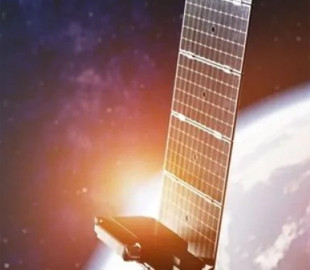
Solar cells based on nanowires are expected to be able to produce more “space energy” to power satellites .
The European project called ZEUS is developing a new generation of nanowire solar cells designed to improve the power systems of communication satellites in low Earth orbit. About it writes Interesting Engineering.
The authors of the project note that nanowires (filamentous nanocrystals) are extremely thin, needle-like structures that absorb sunlight very well. Solar cells based on nanowires can effectively capture almost 100% of sunlight. The diameter of this element is only 200 nanometers, which is about a thousand times thinner than a human hair.
“Covering about 10 percent of the surface with an active material is all that is needed to absorb the same amount of light as if a thin a layer of the same material covered the entire surface,” — scientists note.
200% Deposit Bonus up to €3,000 180% First Deposit Bonus up to $20,000As noted in the publication, the efficiency of solar cells based on nanowires in space is now almost 15%. The goal of the ZEUS project is to improve their efficiency through the use of “triple junction cell nanowires”. The design of these cells theoretically makes it possible to achieve an efficiency of 47%.
The project involves the study of flexible, light materials that could serve as the basis for these solar cells. What's more, the scientists follow an environmental approach, striving to reduce carbon emissions and use resources wisely.
“ZEUS aims to demonstrate not only the commercial potential of the technology, but also its environmental benefits through the life cycle assessment of nanowire-based solar cells, in particular, for the generation of space energy”, — said project leader Enrique Barrigón.
It is reported that the University of Malaga will be primarily responsible for the detailed study of these solar cells and testing their effectiveness in space. Fraunhofer Institute for Solar Energy Systems ISE, Polytechnic University of Valencia and Technological Institute of Packaging, Transport and Logistics also participate in the project.

